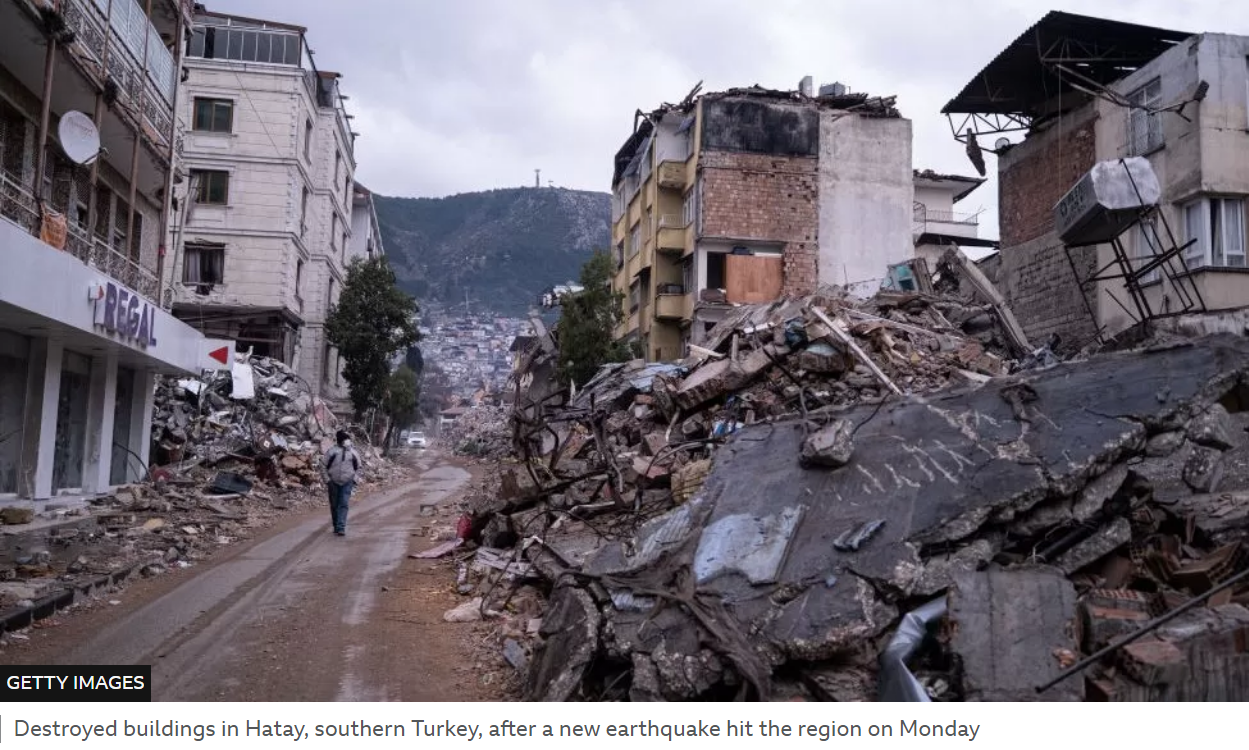On February 22, 2023, a devastating earthquake struck the eastern province of Turkey, leaving many people trapped under the rubble of collapsed buildings. The quake, which measured 6.5 on the Richter scale, hit the town of Ercis, causing widespread damage and triggering aftershocks that were felt across the region. Here are the details of the earthquake and its impact:
The Earthquake and Its Epicenter
• The earthquake hit the town of Ercis in the eastern province of Turkey at around 8:30 am local time.
• The quake measured 6.5 on the Richter scale and had a depth of 10 kilometers.
• The epicenter of the earthquake was located near the border with Iran, about 60 kilometers from the city of Van.
• The earthquake was followed by a series of aftershocks, some of which measured as high as 4.9 on the Richter scale.
Impact of the Earthquake
• The earthquake caused widespread damage in the town of Ercis and the surrounding region.
• Many buildings, including homes, businesses, and schools, collapsed or were severely damaged.
• The earthquake has left many people trapped under the rubble of collapsed buildings, and rescue workers are working around the clock to try to reach them.
• The death toll from the earthquake is currently unknown, but it is expected to be significant. Dozens of people have already been reported dead, and many more are feared to be trapped or injured.
• Hospitals in the region are struggling to cope with the influx of injured people, and there are concerns that the death toll could rise further.
Response to the Earthquake
• The Turkish government has declared a state of emergency in the region and has mobilized emergency services to help with the rescue and recovery efforts.
• The military has been deployed to help with the rescue efforts, and thousands of rescue workers and volunteers are working around the clock to try to reach those trapped under the rubble
• Turkey's president, Recep Tayyip Erdogan, has visited the region to assess the damage and meet with officials leading the rescue efforts.
• The government has also appealed for international assistance, and several countries, including Iran and Russia, have offered to send aid and support.
• However, the mountainous terrain and harsh winter conditions are making the rescue efforts even more challenging, and it is likely to take several days to reach everyone who has been affected by the earthquake.
The aftermath of a natural disaster like an earthquake can be devastating, and the impact can be felt for years to come. Here are some of the ways that earthquakes can affect people and communities:
• Loss of life: The most immediate and tragic impact of an earthquake is the loss of life. People can be killed instantly by falling buildings or other debris, or they can be trapped and unable to escape the devastation.
• Physical injuries: Even those who survive an earthquake can be left with serious physical injuries, such as broken bones, head injuries, and internal bleeding. In some cases, these injuries can be life-changing and may require ongoing medical care.
• Emotional trauma: Natural disasters can also have a profound impact on people's mental and emotional well-being. Survivors may experience symptoms of post-traumatic stress disorder (PTSD), including flashbacks, anxiety, and depression.
• Displacement: Earthquakes can also leave many people without homes, forcing them to live in temporary shelters or makeshift camps. This can be especially challenging for those who have lost loved ones or have been injured in the disaster.
• Economic impact: The aftermath of an earthquake can also have a significant economic impact, as businesses and infrastructure are damaged or destroyed. The cost of rebuilding and recovery can be high, and it may take years for affected communities to recover.






0 Comments